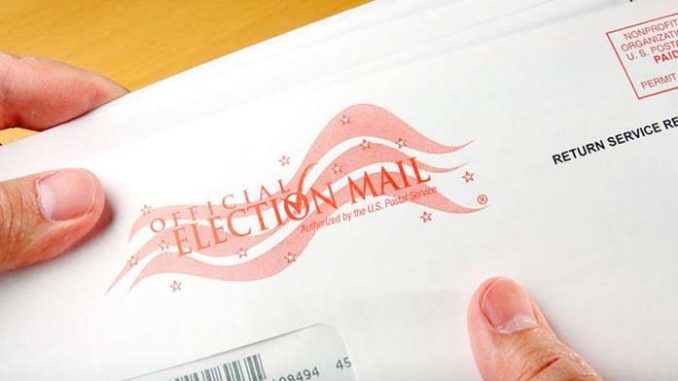
Currently, Arizona law provides no signature verification rules for early ballot envelopes. A bill that enjoys bipartisan support lays out those rules, and is set to be voted on by the Arizona Senate on Tuesday.
HB2322, sponsored by Rep. Alex Kolodin, has already passed through the House on a vote of 47-13 that included support from a number of Democrats as well as most Republicans.
Should HB2322 pass the Senate as expected, it will give Governor Katie Hobbs an opportunity to codify the signature verification guide she created while serving as secretary of state.
In fact, the bill specifically “designates the Secretary of State’s July 2020 Signature Verification Guide as the minimum requirements for signature verification of a voter’s early ballot affidavit.”
Legislative overview of HB2322:
“Signature verification is the process of comparing the signature on a voter’s affidavit envelope or ballot affidavit with the voter’s signature in the voter registration database. The Signature Verification Guide is used as a reference for the purposes of signature verification during early ballot processing. The Signature Verification Guide includes information on: 1) signature analysis; 2) broad characteristics of signatures; 3) local characteristics of signatures; 4) electronic signatures; 5) assisted voters; and 6) practice exercises. Additionally, the signature verification guide provides images of genuine and questioned signatures as examples for comparing and analyzing signatures. The Signature Verification Guide prescribes additional guidelines stating that: 1) if a name is misspelled, the signature should not be accepted; 2) the broad characteristics of a signature should be evaluated first when analyzing signatures; 3) if the signature on the ballot affidavit is consistent with the broad characteristics in the voter registration database, then the signature should be accepted; and 4) a signature’s slant may show evidence of a forgery. If there are inconsistencies between the signatures on the early ballot affidavit and the voter registration database, the local characteristics of the signature should be evaluated next. The local characteristics of a signature include internal spacing, pen lifts and the beginning and ending strokes of a signature (SOS).
The signature verification process has been a point of contention since the 2020 General Election. During now Secretary of State Adrian Fontes’ tenure as the Maricopa County Recorder, complaints were lodged alleging that the process was haphazard and produced unreliable results.
Although the signature rejection rate jumped 14 times under Stephen Richer during the 2022 cycle, Fontes’ successor at the Recorder’s Office, indicting Fontes’ very lax standards had been improved on, lawsuits have been filed by Republican candidates alleging problems with the signature verification process employed by Maricopa County in 2022.
